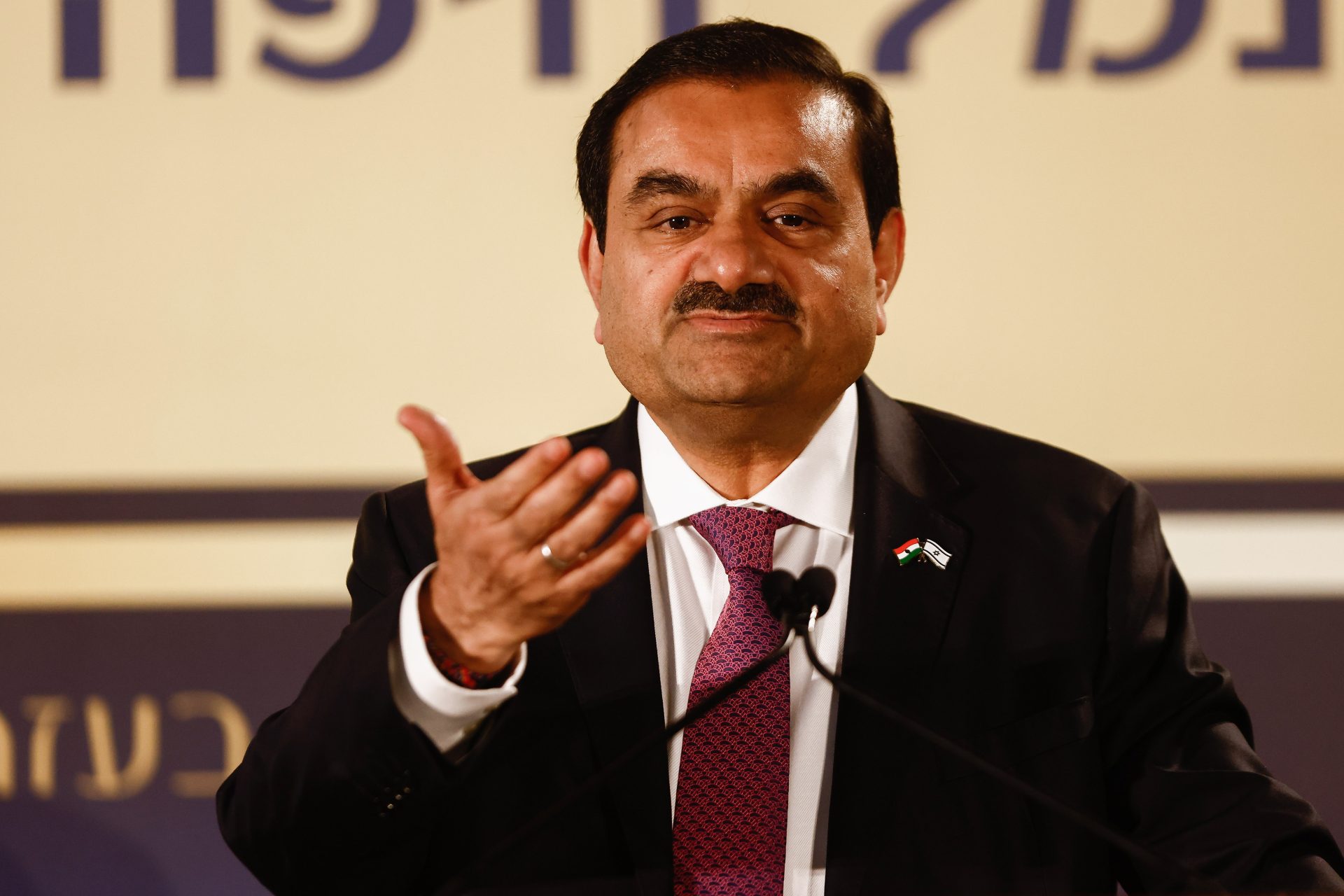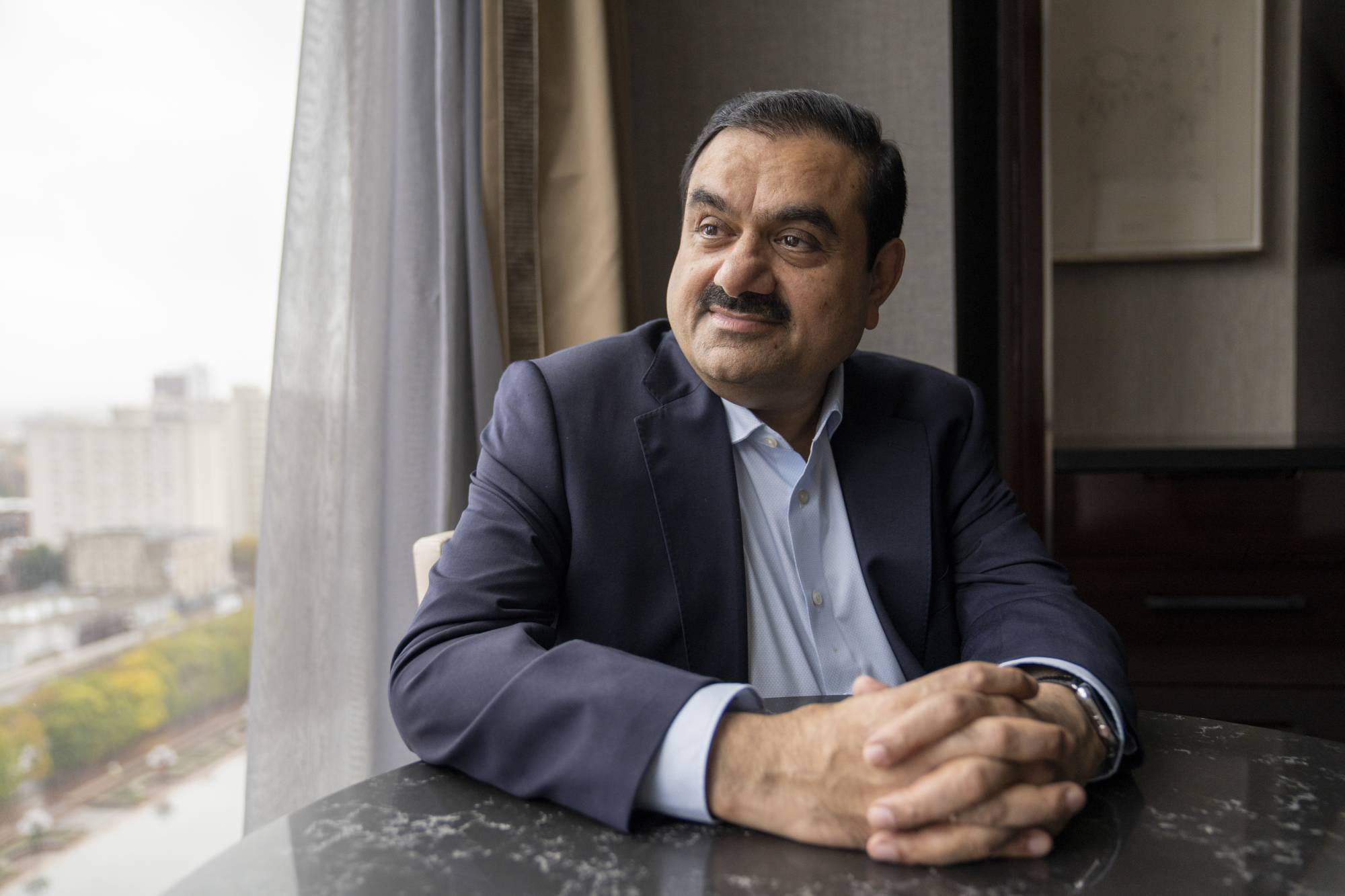Adani Group Still in the Soup: New Report Reveals Adani Family’s Partners Used ‘Opaque’ Funds to Invest in Its Stocks 2023

Adani Group Still in the Soup: New Report Reveals Adani Family’s Partners Used ‘Opaque’ Funds to Invest in Its Stocks 2023
The largest financial scandal in contemporary India is just growing. New evidence in the Adani Group stock manipulation case indicates that ‘opaque’ funds located in Mauritius invested millions of dollars in several of the Adani Group’s publicly listed equities.
Exclusive papers obtained by the Organised Crime and Corruption Reporting Project (OCCRP) revealed that putative business associates with connections to the Adani family, the primary shareholder of the organisation, spent hundreds of millions of dollars in publicly listed Adani stock.

OCCRP has discovered papers that provide more information, including files from many tax havens, bank data, and internal Adani Group correspondence.
The investors turned revealed to have extensively documented connections to the group’s largest owners, the Adani family, in at least two cases, according to the investigation, reflecting Adani stock holdings that at one point reached $430 million.
The two individuals, Chang Chung-Ling and Nasser Ali Shaban Ahli, “have longstanding business ties to the family and have also served as directors and shareholders in Adani Group companies and businesses linked to one of the family’s senior members, Vinod Adani,” the non-profit media organisation stated.
They spent years buying and selling Adani equities using the Mauritius money, according to the records they were able to collect, and they generated large gains. The offshore buildings made their involvement less obvious.
In addition, it revealed that the management firm in charge of their money had paid a Vinod Adani firm to provide them with investing advice.
The issue of whether Ahli and Chang should be seen as operating on behalf of the Adani “promoters,” a phrase used in India to refer to the primary owners of a corporation, is what determines whether this arrangement is illegal, according to OCCRP.

If so, OCCRP noted, their ownership interest in Adani would be higher than the permitted maximum of 75% for insider ownership.
The disclosures by OCCRP come after US-based short-seller Hindenburg Research accused Adani Group in January of engaging in improper business practises, including the use of offshore entities in tax havens like Mauritius from where it claimed certain offshore funds’surreptitiously’ owned stock in Adani’s listed firms.
The conglomerate Adani Group has referred to the allegations as false and devoid of support, stating that it consistently abides by the law. when a recent comeback when it paid off some debt and restored some investor trust, the Adani Group equities had lost $150 billion in market value as a result of the Hindenburg report and were still down around $100 billion.
According to the OCCRP article, an Adani Group representative claimed that the Mauritius funds under investigation by journalists had already been mentioned in the “Hindenburg report” and cited the Supreme Court’s expert committee as saying that an attempt to solve the problem by a financial regulator had “not been proven.”

“In light of these circumstances, these charges are not only unfounded and unsupported but are also recycled versions of those made by Hindenburg. Furthermore, it is definitely stated that every publicly listed company in the Adani Group complies with all applicable regulations, including the rule governing public shareholdings,” the spokesman informed OCCRP.
OCCRP contacted Chang Chung-Ling and Nasser Ali Shaban Ahli for comments, but neither one returned them. Chang, though, denied having any knowledge of any covert acquisitions of Adani shares in an interview with The Guardian. He did not mention if he had purchased any, but he did inquire as to why reporters were uninterested in his other assets.
Requests for feedback from Vinod Adani went unanswered. Although Adani Group had previously denied that he played any involvement in managing the conglomerate, it later acknowledged that he was a member of the “promoter group.”
After Hindenburg Research’s disclosures in January, the Supreme Court formed an expert committee to investigate the claims. The Adani Group has already been the subject of a SEBI investigation, according to the committee’s findings, which were published in May.

“Some of [the Adani Group’s] public shareholders are not truly public shareholders and they could be fronts for [Adani Group] promoters,” the committee said that SEBI has long harboured. It started looking into 13 foreign companies that held Adani shares in 2020. The article had stated that the inquiry “hit a wall” though.
The Adani Group, a conglomerate with interests in ports, logistics, agribusiness, and power generation among others, has once again found itself embroiled in controversy.
A new report suggests that close partners of the Adani family have used “opaque” funds to invest in the company’s stocks, thereby adding a new layer of scrutiny to an organization already beleaguered by allegations of crony capitalism, environmental degradation, and regulatory hurdles.
The report in question, released by an independent investigative agency, points to significant investments in Adani Group stocks through what it describes as “opaque” funding structures. Essentially, these are funds for which the origins are not transparent and which may have bypassed standard regulatory checks. The investors purportedly close to the Adani family have channeled money through offshore entities and trusts, making it challenging to ascertain the bona fides of the funds.
Given the already heightened regulatory environment, these new revelations could lead to intensified scrutiny by various governing bodies including the Securities and Exchange Board of India (SEBI), Reserve Bank of India (RBI), and possibly even international agencies.

If substantiated, these allegations could entail significant legal consequences, including hefty fines and sanctions against the involved entities. The mere existence of the report and the consequent media coverage may also lead to increased volatility in the share prices of Adani Group companies.
Such actions could potentially create an uneven playing field, undermining the principles of fair and transparent financial markets. Opaque funding mechanisms make it difficult for regulatory agencies to trace the origin of funds, thereby undermining the integrity of the financial system.
For existing and potential shareholders, the use of opaque funds can erode trust in corporate governance and financial disclosures of the company.
The Adani Group has previously been scrutinized for its close ties with political leaders, allegations of crony capitalism, and environmental issues related to its projects. For example, its Carmichael coal mine project in Australia has been a flashpoint for environmental protests.
These new allegations may compound the Group’s existing credibility challenges.
While the Adani Group has not yet officially responded to the new report, the conglomerate has in the past robustly defended itself against similar allegations, often citing compliance with all relevant laws and regulations. However, the growing volume and complexity of allegations could warrant a more detailed response in the near future.
While the veracity of the new report’s claims remains to be established, what is clear is that the Adani Group is under a brighter spotlight than ever. Not only does the conglomerate have to manage its vast array of businesses, but it also has to navigate a complex regulatory landscape fraught with both domestic and international challenges.

Investors and stakeholders are now watching closely, waiting for further developments that may shape the future trajectory of one of India’s most powerful but increasingly embattled corporate entities.




